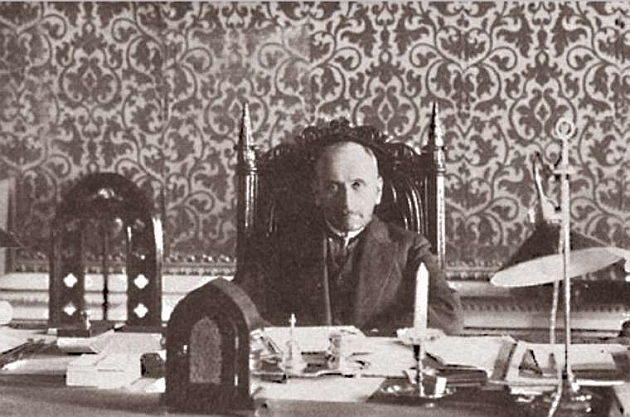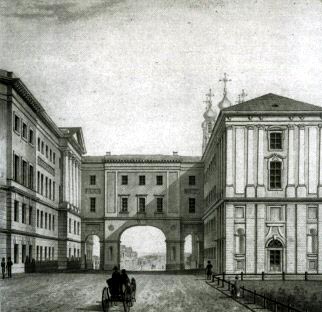|
List Of Tsarskoye Selo Lyceum People
This is a list of alumni and faculty associated with Tsarskoye Selo Lyceum. During 33 years of the Tsarskoe Selo Lyceum's existence, there were 286 graduates. Alumni by year of entrance 1811 *Prince Alexander Gorchakov (1798–1883), diplomat *Konstantin Danzas (1801–1870), Major General *Baron Anton Delvig (1798–1831), poet and journalist * Wilhelm Kuchelbecker (1797–1846), poet and Decembrist * Sergey Lomonosov (1799–1857), diplomat *Fyodor Matyushkin (1799–1872), admiral and senator *Alexander Pushkin (1799–1837), poet *Ivan Pushchin (1798–1859), Decembrist *Pavel Yudin (1798–1852) Other years *Nicholas de Giers *Dmitry Tolstoy * Jacob Grot *Nikolay Danilevsky *Aleksey Lobanov-Rostovsky *Fyodor Shcherbatskoy *Mikhail Saltykov-Shchedrin *Mikhail Petrashevsky * Peter Saburov *Alexander Bulatovich *Alexandr Aksakov * Alexey Yermolov *Sergey Sazonov * Vladimir Lambsdorff *Alexander Izvolsky Notable faculty *Pafnuty Chebyshev Re ... [...More Info...] [...Related Items...] OR: [Wikipedia] [Google] [Baidu] |
Tsarskoye Selo Lyceum
The Imperial Lyceum (Императорский Царскосельский лицей, ''Imperatorskiy Tsarskosel'skiy litsey'') in Tsarskoye Selo near Saint Petersburg, also known historically as the Imperial Alexander Lyceum after its founder Tsar Alexander I, was an educational institution which was founded in 1811 with the object of educating youths of the best families who would afterwards occupy important posts in the Imperial service. Its regulations were published on 11 January 1811, but they had received the Imperial sanction on 12 August 1810, when the four-story "new" wing of the Great Palace was appointed for its accommodation, with special premises for a hospital, a kitchen and other domestic requirements, as well as a residence for the administrative staff. Furniture and utensils were given together with the Neoclassical building, designed by Vasily Stasov, next to the Catherine Palace. The Tsarskoye Selo Lyceum was opened on 19 October 1811. The first graduates ... [...More Info...] [...Related Items...] OR: [Wikipedia] [Google] [Baidu] |
Jacob Grot
Yakov Karlovich Grot (russian: link=no, Я́ков Ка́рлович Грот) ( – ) was a nineteenth-century Russian philologist of German extraction who worked at the University of Helsinki. Grot was a graduate of the Tsarskoye Selo Lyceum. In his lifetime, he gained fame for his translations of German and Scandinavian poetry, his work on the theory of Russian orthography, lexicography, and grammar, and his approach to literary editing and criticism, exemplified in a full edition of the works of Derzhavin (1864–1883). His ''Russkoye Pravopisaniye'' (1878, 1885) (, ''Russian orthography'') became the standard textbook of Russian spelling and punctuation until superseded by the decrees of 1917–1918, although his definition of the theoretical foundations remains little changed to this day. Shortly before his death, he assumed the compilation of ''Academic dictionary of Russian'' (1891–1923), which, although continued by Aleksey Shakhmatov, was never to ... [...More Info...] [...Related Items...] OR: [Wikipedia] [Google] [Baidu] |
Alexander Izvolsky
Count Alexander Petrovich Izvolsky or Iswolsky (russian: Алекса́ндр Петро́вич Изво́льский, , Moscow – 16 August 1919, Paris) was a Russian diplomat remembered as a major architect of Russia's alliance with Great Britain during the years leading to the outbreak of the First World War in 1914. As Foreign Minister, he assented to the Austro-Hungarian annexation of Bosnia and Herzegovina in 1908 in exchange for Austrian support for the opening of the Turkish Straits to Russian warships. In the resultant Bosnian Crisis of 1908–1909 the Powers did not accept the opening of the Straits. Izvolsky, publicly humiliated and destroyed by the debacle, resigned as Foreign Minister in 1910. Early life and career Izvolsky came from an aristocratic family of Russian descent.Kowner, '' Historical Dictionary of the Russo-Japanese War'', p. 167-168. He graduated from the Tsarskoye Selo Lyceum in St Petersburg with honours, and shortly thereafter married C ... [...More Info...] [...Related Items...] OR: [Wikipedia] [Google] [Baidu] |
Vladimir Lambsdorff
Count Vladimir Nikolayevich Lamsdorf (russian: Влади́мир Никола́евич Ла́мсдорф; german: Wladimir Nikolajewitsch Freiherr von der Wenge Graf Lambsdorff; ) was an Imperial Russian statesman of Baltic German descent who served as Foreign Minister of the Russian Empire in 1900–1906, a crucial period which included the Russo-Japanese War and the Russian Revolution of 1905. Early career Lamsdorf was the son of a career officer in the Imperial Russian Army and attended the Page Corps as a youth.Kowner, '' Historical Dictionary of the Russo-Japanese War'', p. 200-201. As with many other Russian diplomats, he attended the Tsarskoye Selo Lyceum in St. Petersburg and began his career as a government bureaucrat in 1866. At the Berlin Congress he was in the retinue of Prince Alexander Gorchakov, the Chancellor of the Russian Empire. In 1884 the young diplomat was present at the meeting of Alexander III of Russia, Wilhelm I of Prussia and Franz Josef o ... [...More Info...] [...Related Items...] OR: [Wikipedia] [Google] [Baidu] |
Sergey Sazonov
Sergei Dmitryevich Sazonov GCB (Russian: Сергей Дмитриевич Сазонов; 10 August 1860 in Ryazan Governorate 11 December 1927) was a Russian statesman and diplomat who served as Foreign Minister from November 1910 to July 1916. The degree of his involvement in the events leading up to the outbreak of World War I is a matter of keen debate, with some historians putting the blame for an early and provocative mobilization squarely on Sazonov's shoulders, and others maintaining that his chief preoccupation was "to reduce the temperature of international relations, especially in the Balkans".John M. Bourne. ''Who's Who in World War One''. Routledge, 2001. . Page 259. Early career Of lesser noble background, Sazonov was the brother-in-law of Prime Minister Pyotr Stolypin, who did his best to further Sazonov's career. Having graduated from the Tsarskoye Selo Lyceum, Sazonov served in the London embassy, and the diplomatic mission to the Vatican, of which he became ... [...More Info...] [...Related Items...] OR: [Wikipedia] [Google] [Baidu] |
Alexey Sergeyevich Yermolov
Alexey Sergeyevich Yermolov (russian: Алексей Серге́евич Ермолов; 12 November 1847 – 4 January 1917)Yermolov entry in the biographies of the State Council Members was a Russian politician. Yermolov was born in 1847 (by some other sources in 1846), in 1866 graduated from the , in 1871 received the Kandidat of agricultural sciences degree from the Petersburg ... [...More Info...] [...Related Items...] OR: [Wikipedia] [Google] [Baidu] |
Alexandr Aksakov
Alexandr Nikolayevich Aksakov (Алекса́ндр Никола́евич Акса́ков; 27 May 1832 – 4 January 1903) was a Russian writer, translator, journalist, editor, state official and psychic researcher, who is credited with having coined the term "telekinesis". While living in Germany with his wife and publishing his writings there, he began to spell his name as Alexander Aksakof to accommodate the German spelling style, and this is the name by which he is most known outside of Russia. Biography Alexandr Nikolayevich Aksakov was born in Penza Governorate, to the landlord Nikolai T. Aksakov, nephew of the writer Sergey Aksakov. His wife's name was Sophie. by William Henry Harrison, 1879. In 1851, having graduated from the Tsarskoye Selo Lyceum, Aksakov joined the Russian Imperial Ministry of Internal Affairs. In 1852 as a member of Melnikov-Pecherskiy's expedition he traveled to the Nizhny Novgorod region to investigate the case of the local Old Believers mo ... [...More Info...] [...Related Items...] OR: [Wikipedia] [Google] [Baidu] |
Alexander Bulatovich
Alexander Ksaverievich Bulatovich (russian: Алекса́ндр Ксаве́рьевич Булато́вич; 26 September 1870 – 5 December 1919) tonsured Father Antony (отец Антоний) was a Russian military officer, explorer of Africa, writer, hieromonk and the leader of the imiaslavie movement in Eastern Orthodox Christianity. Biography Early life Alexander was born to a family of Oryol nobility and was of Russian/Belarusian, French, Georgian, and Tatar descent. He studied in Tsarskoye Selo Lyceum, then served in the Hussar Leib Guard regiment. Accomplishments In 1896 he was a member of the Russian mission of the Red Cross in Ethiopia, where he became a confidant of Negus Menelek II of Ethiopia. He begins arrival to Ethiopia with phenomenal showy courier's marathon by reason of record speed with the use of camel, during this courier's march the Nikolay Leontiev meets him to give help. In 1896 - 1899 he became a military aide of Menelek II in his war with Italy ... [...More Info...] [...Related Items...] OR: [Wikipedia] [Google] [Baidu] |
Peter Alexandrovich Saburov
Peter Alexandrovich Saburov (22 March O.S./3 April 1835 – 28 March O.S./10 April 1918) was a Russian diplomat, collector of ancient Greek sculpture and antiquities, and an amateur chess player and patron of chess tournaments, as an honorary President of the St Petersburg Chess Club. As the Tsarist Russian envoy to Greece, he assembled a collection of Ancient Greek sculpture, Tanagra figurines, painted vases and other Greek antiquities, which, at the end of his subsequent embassy to Berlin from 1879 to 1884, he then sold to the Antikensammlung Berlin, where the collection was catalogued by Adolf Furtwängler, who thereby established his reputation as a master of Greek terracottas, and where it occasioned an acute lack of space that spurred additional construction. Among the prize works was the headless bronze of an ''Apollo'' or ''Dionysus'' found in the sea off the coast of Salamis. During his retirement in Saint Petersburg, the Hermitage Museum purchased part of the remainder ... [...More Info...] [...Related Items...] OR: [Wikipedia] [Google] [Baidu] |
Mikhail Petrashevsky
Mikhail Vasilyevich Butashevich-Petrashevsky (; – ), commonly known as Mikhail Petrashevsky, was a Russian revolutionary and Utopian theorist.Figes, p. 128 Biography Early life Mikhail Petrashevsky graduated from the Tsarskoye Selo Lyceum (1839) and Saint Petersburg State University with a degree in law (1841). He was then employed as a translator and interpreter at the Ministry of Foreign Affairs. Petrashevsky is known to have edited and authored most of the theoretical articles for the ''Pocket Dictionary of Foreign Words'' (1846), which popularized democratic and materialist ideas and principles of utopian socialism. Political activism & Petrashevsky Circle In 1844, Petrashevsky's apartment became the venue for social gatherings of intellectuals, which from 1845 took place on a weekly basis. These meetings were later dubbed ''pyatnitsy'' ("Fridays") and those attending them would be known as '' Petrashevtsy''. The latter came to Petrashevsky's house and used his person ... [...More Info...] [...Related Items...] OR: [Wikipedia] [Google] [Baidu] |
Mikhail Saltykov-Shchedrin
Mikhail Yevgrafovich Saltykov-Shchedrin ( rus, Михаи́л Евгра́фович Салтыко́в-Щедри́н, p=mʲɪxɐˈil jɪvˈɡrafəvʲɪtɕ səltɨˈkof ɕːɪˈdrʲin; – ), born Mikhail Yevgrafovich Saltykov and known during his lifetime by the pen name Nikolai Shchedrin ( rus, Николай Щедрин), was a major Russian writer and satirist of the 19th century. He spent most of his life working as a civil servant in various capacities. After the death of poet Nikolay Nekrasov, he acted as editor of a Russian literary magazine ''Otechestvenniye Zapiski'' until the Tsarist government banned it in 1884. In his works Saltykov mastered both stark realism and satirical grotesque merged with fantasy. His most famous works, the family chronicle novel ''The Golovlyov Family'' (1880) and the political novel ''The History of a Town'' (1870) became important works of 19th-century fiction, and Saltykov is regarded as a major figure of Russian literary Realism. B ... [...More Info...] [...Related Items...] OR: [Wikipedia] [Google] [Baidu] |
Fyodor Shcherbatskoy
Fyodor Ippolitovich Shcherbatskoy or Stcherbatsky (Фёдор Ипполи́тович Щербатско́й) (11 September (N.S.) 1866 – 18 March 1942), often referred to in the literature as F. Th. Stcherbatsky, was a Russian Indologist who, in large part, was responsible for laying the foundations in the Western world for the scholarly study of Buddhism and Buddhist philosophy. He was born in Kielce, Poland (Russian Empire), and died at the Borovoye Resort in northern Kazakhstan. Stcherbatsky studied in the famous Tsarskoye Selo Lyceum (graduating in 1884), and later in the Historico-Philological Faculty of Saint Petersburg University (graduating in 1889), where Ivan Minayeff and Serge Oldenburg were his teachers. Subsequently, sent abroad, he studied Indian poetry with Georg Bühler in Vienna, and Buddhist philosophy with Hermann Jacobi in Bonn. In 1897, he and Oldenburg inaugurated ''Bibliotheca Buddhica'', a library of rare Buddhist texts. Returning from a trip to India ... [...More Info...] [...Related Items...] OR: [Wikipedia] [Google] [Baidu] |





